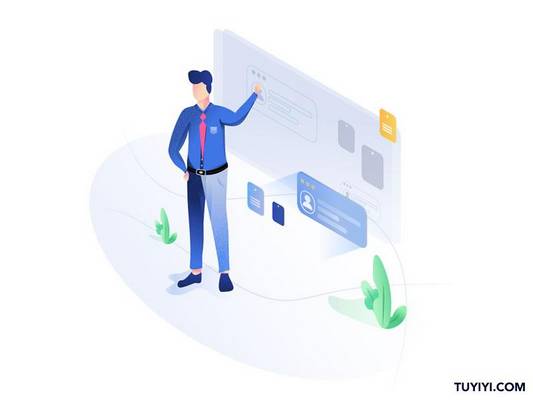视频加载中…
well hey there im emma from mmmenglish!
i think that working on your listening skills is one of the hardest parts of becoming fluent in a new language.
嘿,我是emma,欢迎来到emma的美味英语!
我觉得提升自己的听力水平是流利地讲一门新语言最困难的部分。
itt even recognise them.
and therere unable to understand them, when you want so much to be a part of the conversation but you get stuck.
就像你在教室学到的所有的规则,但是当你开始和母语者谈话的时候,突然就消失了,因为他们开始使用一些俚语,他们会说的很快把单词都挤到了一起,你根本就没法听出来。
没有比和某人谈话但是却无法理解他们更加令人沮丧,更加令人灰心丧气的事情了,你那么融入一个对话,却被困住了。
its the worst feeling. i actually, i can feel that feeling now in my gut.
没什么比这种感觉更差了。我真的,可以完全感同身受。
its so difficult to understand native speakers and what you can do to become a better english listener. . . . . . .
这种感觉确实很糟糕,但是我们今天要讨论一下为什么理解母语者这么困难,以及要做什么才能成为更好的英语听力专家。
so why, why is listening to native english speakers so hard? firstly, there are so many versions of english and this is true for most languages.
那么为什么听英语母语者说话这么困难呢?首先,英语有很多版本,大多数语言都是这样的。
theres regional dialects and accents that make it hard to listen and understand.
but to put it in context, there are some english accents that i have trouble understanding.
有地区方言以及口音,让语言变得很难听懂。
但是联系一下背景,其实有很多英语口音我听起来都很困难。
all english speakers, all of us, were all trying to understand and communicate with each other, even if it is our own native language.
sometimes we use different words or different grammar rules to each other and that makes things really tough for you.
所有的说英语的人都得特别努力地理解他人,和他人进行沟通,即使这是我们自己的语言。
有时候我们会使用截然不同的词汇和语法规则,这让听英语对你而言更加困难了。
now there are also significant differences between formal and informal spoken english.
informal english includes slang and common expressions that are unique to a particular region or even a particular group of people within a community.
正式和非正式英语口语之间其实差别非常大。
非正式英语里包括俚语和一些常见的表达,这些都是某个特定的区域或者是特定群体的人所独有的。
you come into the cricket and you bowl and conditions are alright theres got no idea.
i mean, i have no idea what my brother said just then and we speak the same language.
你去打板球,情况还不错,可能有点出乎预料的动作,球员完全不知道发生了什么。
我的意思是,我自己也不知道我哥哥刚才说了什么,虽然我们说的是同一种语言。
we learnt it from the same people!
another reason why listening is hard is because youre used to the english that you hear from your english teachers and that can be a little different to real-life english.
我们都是从同样的人那里学的!
为什么听力如此困难的另外一个原因是你太习惯于从英语老师那里听到的英语了,而这和日常生活中的英语是有点点不同的。
now think about the way that you speak or you chat with your friends in your own native language and then think about how you would present in front of your colleagues at work.
the words you use would be slightly different, you would maybe speak a little more clearly, maybe more formally.
想想你用自己的母语说话的方式,或者是和朋友交谈的方式,然后再想想在工作场合给同事作报告的时候又是什么方式。
你使用的词汇可能会有些微差异,你可能会说的更加清楚一点,可能更加正式一点。
and this is exactly the same difference that im talking about.
your english teachers are trying to express themselves clearly so that you can understand them.
这和我正在谈论的区别是一样的。
你的英语老师尽量清晰地表达自己,这样你们才能理解他们。
right, thatm going to go through a few things that will help you to take action and start improving your english listening skills.
好的,那非常有趣,但是你该怎么做才能提升听力技能呢?现在呢,我要带大家看一些能够帮助你们采取行动,开始提升英语听力技能的方法。
what and how are you practising? this is a really important question for you.
你现在在练习什么,是怎么练习的呢?这对你而言是一个非常重要的问题。
so therere doing that right now.
but practising listening is a completely different exercise and when youre listening to it.
这里的听是一个动词,你现在就正在听呢。
但是练习听力是完全不同的练习,当你练习听力的时候,你必须要注意你听的内容,以及听的方式。
so if yous a little difficult to keep going, right?
your first reaction might be to put the subtitles on which is great for helping you to understand but not really a great way to practise your listening skills.
如果你现在正在听这个视频的话,你能够理解我说的一般内容,有点点难以继续下去,对吗?
你的第一个行动可能就是打开字幕,这能够很好地帮助你理解,但是并不是练习听力技能的很好的方式。
so when youre practising your listening skills, instead of turning on the subtitles, slow down the speed of the video, alright?
this gives you a little more time and space to help hear the sounds that im making and then connect them to the words that you recognise.
所以当你练习听力技能的时候,不要打开字幕,而是要放慢视频的速度,懂了吗?
这会给你更多的时间和空间来听清楚我的发音,然后和你知道的单词联系起来。
and you can use this trick on any youtube video. this one or a more challenging one.
其他的油管视频都可以使用这个小妙招。这个或者是更有挑战性的。
so you can click that button just down there and slow down the speed. okay then youm saying more clearly.
你可以点击下面的按钮,放慢速度。好的,然后你就可以更加清晰地听清楚我说的是什么了。
now slowing down the speed is not cheating, itre spoken and listening to common patterns in english.
then at any time you can speed it back up to natural pace and hear it as a native speaker would say it.
放慢速度并不是作弊,这是开始听清楚发音,认出来单词的很好的方式,而且能听到英语中常用的一些结构。然后在任何时刻你都可以调回原来的自然的速度,听听母语者是怎么说的。
now there are a few of you who complain that i speak too slowly in my lessons.
but you can actually use this same tool to increase the speed of the video too and this is a really great feature to start getting into the habit of using, right?
你们其中可能有些人会抱怨我在课程中说话语速太慢了。但是你们也可以使用相同的工具来给视频加速,这可以帮助大家养成使用这个功能的习惯,对吧?
you can do it with audio books, you can do it with other video platforms as well, get into the habit of it.
now if youm saying without the subtitles on, awesome!
有声书也可以这么做,其他的视频平台也可以这样,慢慢形成这个习惯。
如果大家在看这个视频,而且能够不开字幕理解我说的大部分内容的话,那就太棒了!
but now i want you to try and challenge yourself a little.
so challenge yourself by listening to some 
videos by native english speakers who arent teachers, right?
但是现在呢,我想让大家试着挑战一下自己。挑战一下自己去听不是老师的英语母语者的视频吧。
so use the same technique that i mentioned just before, slow down the speed when its difficult to hear before you turn on the subtitles.
so to summarise, listening to complicated movies in english with the subtitles on, is not the best way to practise your listening skills.
使用我刚才提到的相同的技巧,如果听不懂的话,在打开字幕之前,放慢视频速度吧。总结一下,看复杂难懂的英语电影的时候打开字幕并不是练习听力技能的最佳方式。
in fact, subtitles dont really help you with your listening skills much at all.
start with material that you can understand and from there, increase your difficulty.
其实呢,字幕根本不能帮助你提升听力技能。
从你能够理解的语料开始,然后慢慢地增加难度。
and just to be clear, when i say difficulty im talking about different accents.
im talking about the context so lots of background noise makes it challenging to listen.
说清楚一点,我说的困难指的是不同的口音。
我说的是整个语境,可能有很多背景噪音,所以会听起来比较有挑战性。
im talking about more informal conversations, you know, that often use slang or different expressions that might be new. all of these things increase the difficulty of listening to someone in english.
我说的是不那么正式的对话,你懂得,经常会使用俚语以及一些新的不同的表达。这些都会增加听某个人用英语讲话的难度。
so these are the things that you should challenge yourself with. listening to speech is different than reading text.
这些都是你应该挑战自己的部分。听人说话和看书实际上是不一样的。
i mean, people speak kind of differently than they write. well, like yeah all of these words are exactly what im talking about.
我的意思是,人们说话和写作的方式其实是有点不同。就像所有这些单词就是我在讲的。
every language has their own fillers that people use. now fillers are little words that dont mean much.
每个语言都有大家会使用的一些填充词。填充词都是没什么具体意思的小单词。
people usually add them to their speech without even thinking about 
it.
theyre words like um, uh, well, i mean, actually, like.
人们通常没经过什么思考,就会在说话的时候加上这些词。
比如说恩,呃,好的,我指的是,其实,比如这些词。
theyre going to say next.
now its really natural for native speakers to use them.
它们都是填充词,它们的存在是为了给说话的人更多时间来考虑接下来要说什么。
母语者使用这些填充词是非常自然的现象。
they dont really mean very much.
他们甚至想不都会想。但是当你听母语者说话的时候,这对你而言可能会比较困难,因为他们说话的时候都是这些额外加上的词汇,没什么具体的意思。
learning them, becoming familiar with the ones that are commonly used will help your brain to sort of skip over them while youre saying in the sentence.
so these are really commonly used by native speakers in lots of different english-speaking countries but there might be some more specific ones in certain areas.
学习这些词汇,熟悉那些经常用到的能够帮助你的大脑在听别人说话的时候自动跳过它们,这样你就可以训练自己忽略它们,去听句子里面更加重要的信息。
这些都是不同英语国家的母语者常用的词汇,但是某些特区可能会有特定的表达。
so if youre from, then please do.
id love to have you help 
my students here on the mmmenglish channel.
如果你是英语母语者在看这个视频的话,你有一些你们国家常用的填充词想要加入其中,那就请大家这么做吧。
我很喜欢让大家帮助美味英语的学生。
but i always find it really interesting to hear the different fillers in other languages too because they can be quite different and they sound quite strange if you try and use a filler from another language in english.
no one will recognise it as a filler.
但是我觉得听到其他语言不通的填充词也非常有趣,因为它们非常不同,听起来有点奇怪,如果你试着用英语说其他语言的填充词的话。
没有人能够认出来这是个填充词。
right so you need to study connected speech. just as grammar is the path to better writing and confidence is a big step towards better speaking, understanding connected speech is the key to better listening skills in english.
好的,所以大家需要做的就是学习连读。正如语法是提升写作能力的道路,自信是提升口语能力的一大步一样,理解话语连读时提升英语听力技能的关键。
connected speech is the way that sounds and words link together, they blend together or maybe the sounds even change completely as we speak a word out loud.
native speakers dont pronounce every word separately.
连读指的就是将音节和单词连接起来,它们会融为一体,如果我们说的声音比较大的话,可能听起来语音完全改变了。
母语者并不会把每个单词的音都给发出来。
instead, we push words together, some of these sounds disappear or they change and it all happens as we speak out loud. so knowing what connected speech is is the first step but you need to practise it as well.
相反的是,我们会把单词挤到一起,有一些音就会消失,或者是改变,我们说话的时候都会这样。知道连读是什么是第一步,但是你也需要进行练习。
now this is a great place to start.
there is a whole playlist of mine on connected speech right there. how to use it in naturally spoken english.
这就是一个超赞的开始。有一整个播放列表都是关于连读的。
如何在自然英语口语中使用连读。
so i go over a lot of detail there step-by-step. theres lots of opportunities to practise as well.
我在这些视频里一步步地带大家过了很多细节。有一些例子,还有很多进行练习的机会。
now it go anywhere just yet alright?
because im not quite finished yet.
我会在本节课程的结束放上链接,所以大家可别换台哦?
因为我还没有结束呢。
listeningre multitasking.
you can listen to music while youre cycling at the gym.
听力其实是很赞的,因为你在多任务工作的时候也可以听。在开车的时候就可以听音乐。
在散步的时候可以听播客,在健身房蹬自行车的时候可以看电视。
awesome! but if you want to improve your listening skills, you need to do more than just listen.
太赞了!但是如果你想要提升听力技能的话,你需要比听做得更多。
you need to be actively listening, right? to do that, the best thing you can do is have a goal.
你需要积极地去听,懂了吗?要那么做的话,最好的事情就是定下一个目标。
set a specific goal or a challenge that you need to accomplish through the listening practice.
so you could challenge yourself to recognise ten new words from a podcast and write them down as youre listening to them.
在听力练习的过程中要定下一个具体的目标,你需要完成的或者是挑战。
所以呢大家可以在听的时候可以挑战自己从一个播客里面认出十个新的单词,然后写下来这些单词。
maybe even try and guess the meaning from the context of the discussion. you can look them up after to check if youre right.
可能甚至是试一下从讨论当中猜一下是什么意思。大家可以在后面检查一下是不是对的。
another idea is to use a video with a transcript. a ted talk is perfect for this.
另外一个好主意就是使用有字幕的视频。ted就很完美啦。
so listen and after you listen, try and explain the authors opinion about a particular issue.
and then use the transcript to go back and see how much of it you got right or how much of it you understood.
那就听呗,听完之后试着解释一下作者或者是演讲者对于某个问题的观点。
然后用字幕回去检查一下你对了多少,理解了多少。
if yous helping you to practise your english skills, then practise telling each other a story, maybe about your childhood.
then try to summarise it back to them so that they can tell you how accurate you were with your listening.
如果你足够幸运有一个语伴,那就是正在学习你的母语,并且能够帮助你练习英语技能的人的话,那就练习互相给对方讲故事,可能是关于童年的。然后你试着去给对方总结一下,这样他们就能够告诉你你听对了多少。
another awesome technique is to combine different english skills so combine listening with speaking or combine it with reading or writing.
like i said earlier, if you hear an expression that you dont know, try and guess the meaning from the context and just make a note of it so you can check it later.
另外一个很赞的技巧就是结合不同的英语技能,把听力和口语技能结合,或者是把听力和阅读或者写作结合。
正如我之前说过的,如果你听到一个不知道的表达的话,试着从语境中猜猜是什么意思,然后记录一下,这样后面就可以检查一下了。
while youre copying their tone and their stress patterns.
当你在听的时候,读一下字幕,但是不要只是在脑海中读,要大声读出来,练习你的发音,你可以模仿或者是跟着某个人读。
这样的话你就可以复制他们的语调以及重音模式。
its a brilliant way to develop your pronunciation skills and your listening skills.
all of these things are going to help you to improve your listening skills but they require extra work.
这是提升发音技能和听力技能的很棒的方式。
这些都能够帮助你提升听力技能,但是需要额外的努力。
itre two really different things.
不只是听英语,而是练习听英语。它们是完全不同的两件事情。
donre listening.
不要只是听。想法的是,要保证你在认真地听。
youre listening again to check.
你在思考,你在理解。你会再听一遍去检查一下。
youre listening again. right? you get the idea.
你会写下来,然后再听一遍。对吗?大家看来懂了。
alright a little pop quiz. i want to see if youve been talking about, how much of this video did you understand?
好的,给大家一个小测试。我想检查一下大家是不是真的在认真听我说了什么,你理解了视频的多少呢?
were you actively listening or were you just staring out the window of the bus thinking about something else? to check if you are listening, i want you to answer this question in the comments below this video.
你是在积极地听还是盯着窗外的公交车开小差了呢?为了检查一下你们是不是在听,我想让大家在这个视频下面的评论区回答一下这个问题。
what can you do to increase the difficulty of the audio youre listening to? can you remember what i said?
你在听的时候能做什么来增加难度呢?你能记住我说了什么吗?
were you actually listening? another question, what is connected speech?
你真的在听吗?另外一个问题,什么是连读呢?
and how can it help you to listen to native speakers? its an important one.
这能够在多大程度上帮助你更好地听母语者讲话呢?这点非常重要。
if you cant remember, maybe you need to go back and watch this video again.
listen actively this time, alright?
如果你没记住的话,你可能需要回去再看一遍视频。这次要积极地听,好吗?
or you can check the answers to these questions on the mmmenglish blog because theres a full transcript of this lesson and every lesson that i make on the mmmenglish blog.
the link is in the description and up there.
或者是可以在美味英语的播客里面检查一下这些问题的答案,因为美味英语博客会有整节课程以及每节课程的完整字幕。
链接就在描述区,就在那里。
if you havent subscribed to the channel yet then please do that right here.
and if yous go check out this video right here.
如果你还没订阅我的频道的话,那就快点订阅吧。
如果你准备好和母语者进行听力挑战的话,那就看看这里的这个视频吧。